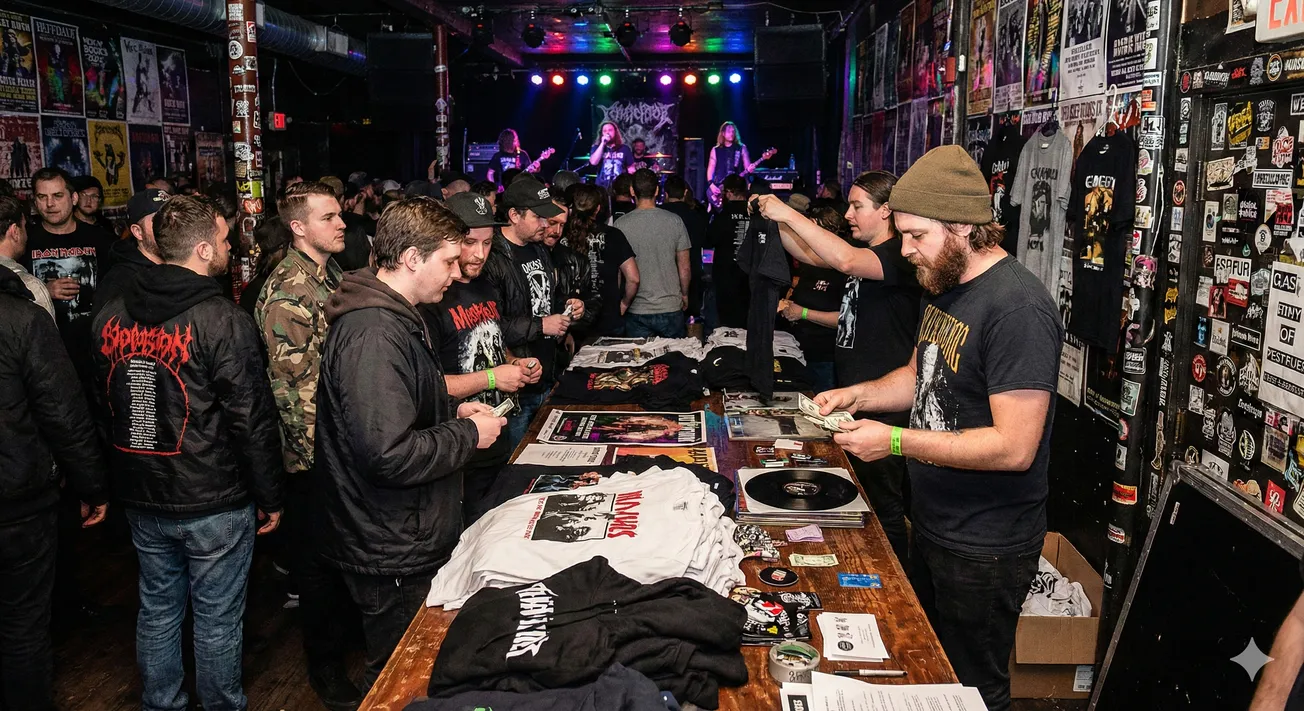ELIMINATE THE MIDDLEMEN
When you want to make something happen, you need a direct connection to your people. Your fan club is that direct connection. The kid who wants to start a wave at a baseball stadium doesn’t set up a petition to gather signatures or ask for a high-priced loan and some radio support. He just starts doing his thing. Aside from creating music, connecting directly with your fans is your thing, too – with emphasis on the word directly. Make music >> Embrace your tribe >> Enjoy real connectionsWhen I bring this up to artists, it seems obvious. But many artists still get a little hazy on the definition of direct. They assume a Facebook friend or a Twitter follower is a direct connection. False. The reality is, most social media platforms DIS-connect artists from their fans. Most “social” platforms withhold the most important information about your fans – their emails, phone numbers, and addresses – because they make money selling that information to advertisers. Social media IS the middleman trying to charge you to communicate with your own fans.OWN YOUR SH!T
The first step to “embracing your tribe” is to capture your fans’ contact info. Who are they? Where do they live? What’s the best way to stay in touch with them when they are offline the other 18 hours a day? In order to do this, you will need your own web site. Not your own page in some massive corporate shopping mall surrounded by thousands of other artists and ads. Its time to move out. You need your own place – your own domain.Web domains cost about $15 a year or less, and usually come with email addresses @yourdomain.com. This is important, as many email services will not let you email your fanbase from a free Yahoo-type email account. When you reach out to fans who have specifically asked to be on your email list, that’s not spam – that’s effective communication. But free email services aren’t equipped for that, and if you send something from a Hotmail email address, it shouts “AMATEUR!”DO SOME RESEARCH
ASK FOR IT
Through your web site, you have to prompt people to sign up to your fan club – plain and simple. If they don’t provide their contact info, they don’t get to see your web site. I should reiterate this article is for people in the music business, which implies you are trying to earn money. Money comes from true fans. True fans will give you their contact info, but you need to ask for it, and tell them why you want it. This leads to my next point about paid fan clubs and protected content.Your fan club site may simply replace the clipboard on your merch table that collects names and contact info. Some artists charge fans a monthly subscription for protected content they can’t easily find other places. Others create elaborate gamification programs that reward fans who generate the most buzz for the artist. Once you’ve established that direct connection with your fans, the ways you can engage them are limited only by your creativity. Imagine planning a house party tour across America where your fans feed you, house you, pay for your gas, and buy your merch all in advance. THAT is what you can do with a fan club on your own domain.In upcoming articles, podcasts, and our Music Business Meetups in downtown Los Angeles, we will dig deeper into the mechanics of digital strategy for music artists and how to build out your team. Do It Yourself doesn’t mean Do It Alone. You’re going to need a person to show up to work every day and run your digital domain. There is no magic button that does everything for you automatically. Fan clubs take work, but they are the most efficient use of your time when trying to connect your art to your tribe.Gung Hay Fat ChoyRelated articles









